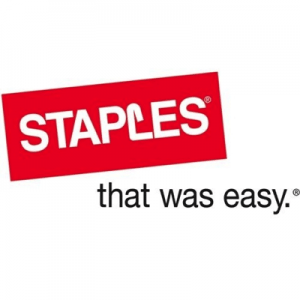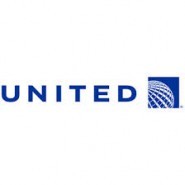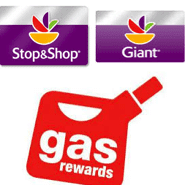Debit Cash-back
Many of us like to do certain online debit card transactions using our PP debit card. This debit card gives 1% cash-back for non-PIN purchases. 1% isn’t a great number, but it is great for something which only takes debit card – it’s better than nothing.
One example of using the PP debit card is to load Bluebird/Serve with a debit card up to $1000 per month. This yields us $10 cash-back per month.
Another (dying) example is loading Chime $100 per day, which would yield even more per month. This option ends October 8 when Chime begins charging 3% for loads from certain debit cards, including PP debit card.
PIN-less Debit
In all of these instances the transaction is presumably running through as a PIN-less debit transaction. A PIN-less debit transaction should probably cost something closer to a debit transaction, without the exorbitant credit card processing fees. Only certain industry sectors are allowed to run such transactions. I believe all financial institutions are able to process PIN-less debit transactions.
Amazon cautions debit card users that by default they run all debit cards as PIN-less debit transactions, not as credit transactions, though they allow you to opt out and have your debit card be processed like a credit card. They advise you to contact your bank to see if the PIN-less debit method will stop you from receiving rewards. See this FatWallet thread for some more details.
Anyway, with the PP debit card, they seem to always issue rewards for online transactions, except when they specially code it not to earn rewards, such as when PP debit worked on Evolve (I believe it doesn’t work anymore), they had it coded not to earn any rewards.
What’s the Cost?
I’ve long wondered what does it actually cost to process these transactions? Is PP the sucker for giving me 1% back, despite not having gotten anywhere near that from the fees, or is Bluebird/Chime the sucker for processing the payment, despite the fact that they’re only taking debit cards which is supposed to cost them very little?
I had always assumed that it was PP who is the loser here; since it’s a PIN-less debit transaction, they’re just getting the 21 cents swipe fee, but no percentage of the swipe-amount (other than the tiny .05%). It is possible that the swipe fee is higher for certain debit cards, as mentioned here, but I had always thought that there was still no real percentage of the swipe being paid, since it’s processed as a debit, just a higher swipe-fee of, say, 50 cents instead of 21 cents.
As we mentioned, Chime announced that they will start charging 3% for certain debit cards issued by smaller banks. But the number 3% seems odd to me. It sounds like to process these debit cards costs them similar to credit card processing fees. Otherwise they should have charged a 1% or a flat $1 fee per load.
I also saw on this website they speak about saving around 1/3 of the processing costs by using PIN-less debit as opposed to regular processing. Again it sounds like PIN-less debit could be costing close to the cost of credit card processing.
Who’s the Sucker?
If that’s the case, then it’s not PP who is the sucker here, it’s Bluebird/Serve and Chime (until October). And then it’s likely that PP will continue to payout for all online debit transactions since they’re actually making money on these transaction, similar to a regular signature-transaction. We’d have to worry more that Bluebird/Serve will stop allowing it, as Chime did, but we wouldn’t need to worry much that PP would stop it. PP was always my bigger worry. (Okay, “worry” is a strong word for this.)
Ultimately, I really don’t know the answer; what do YOU think – who’s the sucker?







PP sent out a notice near the end of 2015, that they have now ceased issuing rewards for pinless debit transactions as of January 1, 2016. They saw the writing on the wall, and obviously are seeing losses on the pinless debit fee difference.
I think the pin less debit fee is relatively small. much closer to debit card fee than credit card fee. Here is why I think that: the processors that process for the IRS charge small amounts, like $3. Some people are making quite large payments to the IRS.
Good point.
Well, they’re not in business to lose money. Just like roulette. You say “Wow, there are 38 numbers and a bet pays 35 to 1, so for every $380 dollars I bet, on average, I’ll win $350, with a net loss of only $30. Pfft..I’m drinking and smoking and having a good time and checking out the cocktail waitress’s ass and next thing I know, I’m down $100.
Even if they are losing money on the transaction, as a combo of credit/Pinless debit, they are not. If everyone started using Pinless debit, they would look at their reports and of course suspend it.
I hope that won’t happen soon!
>1% isn’t a great number, but it is great for something which only takes debit card
I really don’t know of other examples besides PP loads and Chime. Are you implying there are others?
I believe when I signed up for GoBank they allowed the initial funding with a debit card. But I don’t know of any other constant examples. I wish I did;-)
I’m 90% sure PayPal makes money on every PIN-less debit transaction. In the case of Serve and Chime, PayPal is paying cash back on the transaction, so they are probably making money when you do those types of transactions.
When you log into your PayPal account and look at your PPBDC, it shows you what amount is eligible for cash back. I believe Square Cash purchases were not earning cash back. But all my Serve and Chime reloads have always earned cash back.
Could be you’re right, but it could be that they just never got around to dis-allowing cash-back at PIN-less debit merchants, so it defaults to getting cash-back.
I also get for my Serve and Chime loads.
As far as Square is concerned, I believe that I did get cash-back from using PPBDC on Square, but it was only a short time that Square (or PP?) allowed it. Last I know (couple months ago), PPBDC doesn’t work on Square.
Chuck,
Do you suggest any other creative ways to liquidate the paypal balance through the PPBDC with a pinless transaction?
I was hoping a square transaction from me to my wife would do the trick, but your comment mentions that square doesn’t take ppbdc.
Thanks!
People use Serve. Personally, I think it’s better to avoid playing with Paypal compeletly.
Thanks, Chuck.
I don’t want to use Paypal forever, but it helps me now.
People use PPBDC online with Serve, or is it at a store to reload? If the latter, isn’t it a pin transaction, not pin-less?
For me, the transaction must be pin less.
Thanks!
Paypal is the sucker. If processing costs were truly nearly as high as credit cards, there would be more debit card rewards programs around. Ever since the Card Act, there aren’t. So that should tell you something.
Paypal makes money by encouraging you to leave your money in the Paypal account. So they get the interest on the float. They also save on transaction fees for other non-debit Paypal transactions (rather than charging your credit card as a funding source, they can simply take it out of your Paypal balance).
Interesting points.